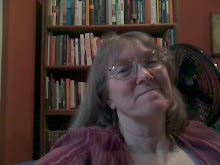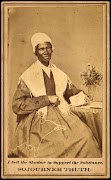Just re-reading bits of Lawrence Rainey’s 2005 The^Annotated Waste Land with Eliot’s Contemporary Prose (published in New Haven by Yale U.P.—let’s get all the information in there like a good English major!) a couple of statements jump out at me. According to Rainey in his introduction, “While Eliot’s status as an international celebrity has plainly waned since his death in 1965—what other poet could give a lecture in a basketball arena holding fourteen thousand spectators, as Eliot did in1956?—his most important poem still retains its lacerating power to startle and disturb” (2).
I love that word lacerating. It might make an interesting contrast with the basic premise of Mary Karr’s “How to Read The Waste Land So It Alters Your Soul”—although maybe getting lacerated is an altering experience, too? Is there something sado-masochistic about using this text with sophomores?
+
Rainey also refers to a book by David Chinitz, T.S. Eliot and the Cultural Divide, to support the statement about “Eliot’s life-long appreciation of popular song and his responsiveness to the seedy side of urban life that he owed to . . . [his background in a neighborhood that was becoming racially mixed]. . .” (3). I’m gratified to know this book exists, and am even happier to see that our college library has a copy. I’m looking for a way to segue from Eliot and the modernists, and our experiment in reader response, to African American and postcolonial theory, and I suspect that Chinitz can offer a key. (Interesting, though, that one of the glowing reviews on the back cover of Rainey’s book is by Chinitz!) I have always suspected that, as Rainey points out a few paragraphs later, “Eliot’s interest in ‘American slang’ and ‘the comic strip,’ his openness to vernacular culture, may go a long way toward explaining why . . . [his] poems . . . possess a colloquial vigor that sets them apart” (4). As Rainey asserts in another place in his introduction that I can’t find right now, Eliot has a reputation as an elitist, but he can be read as just the opposite.
A couple of Eliot’s statements in letters published in Rainey also strike me as interesting in terms of reader response theory. In a text Rainey labels “London Letter, September 1921” Eliot has just attended a Stravinsky concert and is making an intertextual connection (though he wouldn’t have used those words) between Sacre du Printemps and Frazer’s The Golden Bough, a text Eliot himself claimed was an important influence on his writing of The Waste Land. In Eliot’s words, “In art there should be interpenetration and metamorphosis. Even The Golden Bough can be read in two ways: as a collection of entertaining myths, or as a revelation of that vanished mind of which our mind is a continuation” (Rainey 189). This knocked me out, because, even more than some of the quotations we often hear from “Tradition and the Individual Talent,” this statement captures for me what The Waste Land does.
In a more well-known essay--"The Metaphysical Poets"--Eliot argues, "Our civilization comprehends great variety and complexity, and this variety and complexity, playing upon a refined sensibility, must produce various and complex results. The poet must become more and more comprehensive, more allusive, more indirect, in order to force, to dislocate if necessary, language into his meaning" (199). Obviously, the elitism is there in the phrase "refined sensibility": some individuals are more capable of becoming the "catalysts" (to use Eliot's word in "Tradition and the Individual Talent" for the multitude of traditions that are out there. Nevertheless, Eliot seems to value ALL of the variety and complexity of the modern world. Rather than being pessimistic, perhaps his poem finds hope in this variety?
Subscribe to:
Post Comments (Atom)











No comments:
Post a Comment